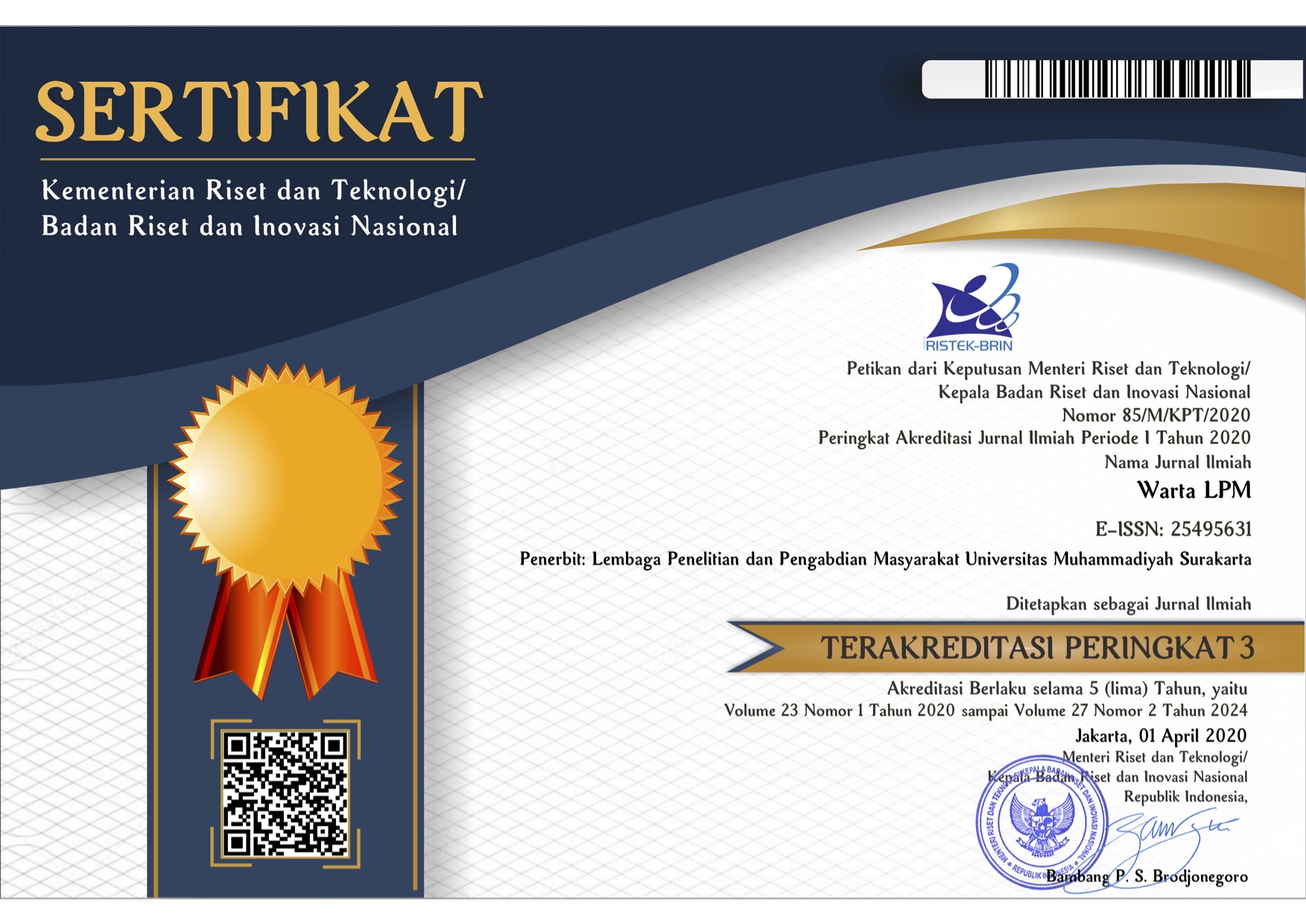Penguatan Aspek-Aspek Nature of Science and Technology dalam Pembelajaran bagi MGMP IPA Kabupaten Kaur Provinsi Bengkulu
Euis Nursaadah(1*), Agus Sundaryono(2), Bhakti Karyadi(3)(1) University of Bengkulu
(2) University of Bengkulu
(3) University of Bengkulu
(*) Corresponding Author
Abstract
Keywords
Full Text:
PDFReferences
Bell, R.L., & Lederman, N.G., (2002). Understanding of the nature of science and decision making on science and technology based issue. The Nauture of Science and Decision Making. 352-377
Dagher, Z R & Erduran S, (2016). Reconceptualizing the nature of science for science education why does it matter?. Science Education
Demirdogan B et al.,(2015) Development and nature of preservice chemistry teachers’ pedagogical content knowledge for nature of science. Res Sci Educ
Dogan, N., & El-Khalick, F., (2007). Turkish grade 10 students' and science teachers' conception of nature of science: a national study. Journal of Research and Science Teaching. 45(10),1083-1112
Educational Development Center. Prioritizing Reform, Innovation, and Opportunities for Reaching Indonesia’s Teachers, Administrators, and Students (PRIORITAS) (2012). http://idd.edc.org/projects/prioritas
Hanley, Michael. (2009). Discovering Instructional Design 13: ICARE Model – Middlesex University’s experience. [Available Online]. http://elearningcurve.edublogs.org/. (diakses tanggal 19 Februari 2015)
Lederman, NG., El-Khalick, F., Bell, R.L., & Schwatz, SR. (2002). View of nature of science questionnaire: toward valid and meaningful assessment of learners' conceptions of nature of science. Journal of Research In Science & Teaching 39, 497-521.
Madaus, G.F. & Scriven, M.S. & Stuffebeam, D.L. (1993). Evaluation models, viewpoints on educational and human services evaluation. Boston: Kluwer-Nijhoff Publishing.
Olson, J.K, (2018) The inclusion of the nature of science in nine recent international science education standards documents. Science Education
Temel, S., Sen, S.,& Ozcan, O (2017). The development of the nature of science view scale (NOSvs) at university level. Research in Science & Techology Education, 1-14
Article Metrics
Abstract view(s): 303 time(s)PDF: 477 time(s)
Refbacks
- There are currently no refbacks.









